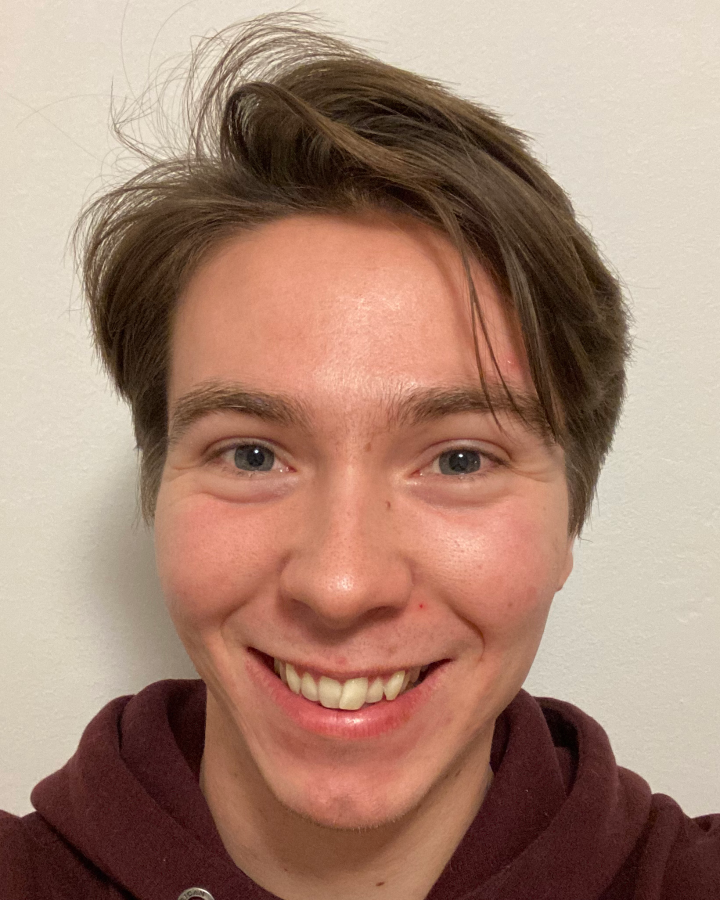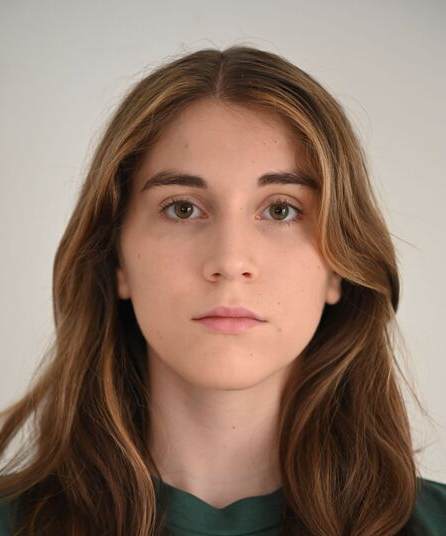Gerti Kappel
O.Univ.Prof.in Dipl.-Ing.in
Mag.a Dr.in techn.
Gerti Kappel
- Email: gertrude.kappel@tuwien.ac.at
- Phone: +43-1-58801-18870
- Office: HC0215 (1040 Wien, Favoritenstrasse 9)
- About:
Gerti Kappel is full professor at the Institute of Information Systems Engineering at TU Wien, chairing the Business Informatics Group. Prior to that, from 1993 to 2001, she was a full professor of computer science (database systems) and head of the Department of Information Systems at the Johannes Kepler University Linz.
From 2016 to 2019, she was a member of the dean’s team of the Faculty of Informatics responsible for research, diversity, and financial affairs. Since the beginning of 2020 she acts as the dean of the Faculty of Informatics at TU Wien.
Her current research interests include Model Engineering, Web Engineering, and Process Engineering, with a special emphasis on cyber-physical production systems. Striving for the unity of research and teaching, she co-authored and co-edited among others „UML@Work“ (dpunkt.verlag, 3rd ed, 2005), „UML@Classroom“ (Springer, 2015), and „Web Engineering“ (Wiley, 2006).
- Orcid: 0000-0002-4758-9436
- Keywords: Process Engineering, Data Engineering, Services Engineering, UML and XML, Business Process Management (BPM), Model Engineering, Workflow Management Systems (WFMS), Web Engineering, Object Orientation, Software Engineering
- Roles: Head of Services, Full Professor
Publications
Keywords: Ruby, EMF Profiles, UML Profiles, Transformations
Astract: Model Engineering gets more important in software development because of the increasing use of models. At the same it is important the adapt and extend existing models. But this is sometimes not possible. For example the model was developed from somebody else or the model is used in another project and it is necessary to keep the compatibility. Therefore several lightweight extension mechanism have been developed. For example UML profile for UML diagrams or EMF profiles for standard diagrams of the Eclipse Modeling Framework (EMF). They allow to extend an already existing model without changing the original one. But unfortunately they have some drawbacks. Only a few transformation languages have a support for lightweight extensions and if they do only very basic. ATL can only access the profile with the underlying Java API. With RubyTL it is not possible to process profiles at all. This thesis covers the development of an extension which enables RubyTL to process EMF and UML profiles. Thereby should the extension be not integrated into the RubyTL code. This will be done with model processors. They integrate the profile into the existing model. Due to the circumstance that the profile is now a complete part of the diagram it is possible that the transformation language can access the stereotypes. Furthermore should it be possible to use the model processors for other transformation languages, like ATL. The goal is to enable the use of UML and EMF profiles also for other transformation languages. But they do not get integrated into the language. The model processors are used from a command line interface (CLI). The feasibility of the approach is demonstrated by using transformations to apply and read profile information in RubyTL and ATL. The resulting ATL transformations are also compared with ATL transformations using the basic ATL support based on the Java API for UML.
Dopplinger, M. (2018). Supporting model extensions in RubyTL [Diploma Thesis, Technische Universität Wien]. reposiTUm. https://doi.org/10.34726/hss.2018.21931
Towards a body of knowledge for model-based software engineering
 Federico Ciccozzi
Federico Ciccozzi Michalis Famelis
Michalis Famelis Leen Lambers
Leen Lambers Sebastien Mosser
Sebastien Mosser Richard F. Paige
Richard F. Paige Alfonso Pierantonio
Alfonso Pierantonio Arend Rensink
Arend Rensink Rick Salay
Rick Salay Gabi Taentzer
Gabi Taentzer Antonio Vallecillo
Antonio Vallecillo Manuel Wimmer
Manuel Wimmer
Ciccozzi, F., Famelis, M., Kappel, G., Lambers, L., Mosser, S., Paige, R. F., Pierantonio, A., Rensink, A., Salay, R., Taentzer, G., Vallecillo, A., & Wimmer, M. (2018). Towards a body of knowledge for model-based software engineering. In Proceedings of the 21st ACM/IEEE International Conference on Model Driven Engineering Languages and Systems: Companion Proceedings. MODELS 2018, Copenhagen, Denmark, EU. ACM. https://doi.org/10.1145/3270112.3270121
How do we teach modelling and model-driven engineering?
 Federico Ciccozzi
Federico Ciccozzi Michalis Famelis
Michalis Famelis Leen Lambers
Leen Lambers Sebastien Mosser
Sebastien Mosser Richard F. Paige
Richard F. Paige Alfonso Pierantonio
Alfonso Pierantonio Arend Rensink
Arend Rensink Rick Salay
Rick Salay Gabi Taentzer
Gabi Taentzer Antonio Vallecillo
Antonio Vallecillo Manuel Wimmer
Manuel Wimmer
Ciccozzi, F., Famelis, M., Kappel, G., Lambers, L., Mosser, S., Paige, R. F., Pierantonio, A., Rensink, A., Salay, R., Taentzer, G., Vallecillo, A., & Wimmer, M. (2018). How do we teach modelling and model-driven engineering? In Proceedings of the 21st ACM/IEEE International Conference on Model Driven Engineering Languages and Systems: Companion Proceedings. MODELS 2018, Copenhagen, Denmark, EU. ACM. https://doi.org/10.1145/3270112.3270129
Interoperability and Integration in Future Production Systems
 Manuel Wimmer
Manuel Wimmer Siegfried Reich
Siegfried Reich Wernher Behrendt
Wernher Behrendt Stefan Thalmann
Stefan Thalmann Georg Weichhart
Georg Weichhart Alois Zoitl
Alois ZoitlKeywords:
Astract: Research in areas of Internet of Things (IoT), Industry 4.0 (I4.0), Cyber Physical Systems (CPS), consider system-of-systems composed of hardware and software systems that seamless work together. Interoperability ranges from compatibility (systems do not disturb other systems, but no interaction between systems) to integration (systems that share a common model/worldview). Between these extremes a continuum of interoperability exists.
In any case, interoperability is a model-driven approach - in contrast to data-driven or machine-learning approaches, for example. In general, models contain modules, connections, and behavior descriptions of different types.
Integration and interoperability may not only be seen as (goal) states but also as processes. Changes in one system might trigger adaptation in other systems. However, in loose integration and interoperability settings there is more support for the evolution of models.
Huemer, C., Kappel, G., Wimmer, M., Proper, H. A., Reich, S., Behrendt, W., Thalmann, S., Weichhart, G., & Zoitl, A. (2018). Interoperability and Integration in Future Production Systems. In 2018 IEEE 20th Conference on Business Informatics (CBI). IEEE Computer Society, Vienna, Austria. IEEE Computer Society. https://doi.org/10.1109/cbi.2018.10067
Data Analytics for Industrial Process Improvement A Vision Paper
 Stefan Thalmann
Stefan Thalmann Juergen Mangler
Juergen Mangler Tobias Schreck
Tobias Schreck Marc Streit
Marc Streit Florian Pauker
Florian Pauker Georg Weichhart
Georg Weichhart Stefan Schulte
Stefan Schulte Christian Kittl
Christian Kittl Christoph Pollak
Christoph Pollak Matej Vukovic
Matej Vukovic Milot Gashi
Milot Gashi Stefanie Rinderle-Ma
Stefanie Rinderle-Ma Josef Suschnigg
Josef Suschnigg Nikolina Jekic
Nikolina Jekic Stefanie Lindstaedt
Stefanie LindstaedtKeywords:
Astract: Nowadays, manufacturers are increasingly able to collect and analyze data from sensors on manufacturing equipment, and also from other types of machinery, such as smart meters, pipelines, delivery trucks, etc. Nevertheless, many manufacturers are not yet ready to use analytics beyond a tool to track historical performance. However, just knowing what happened and why it happened does not use the full potential of the data and is not sufficient anymore. Manufacturers need to know what happens next and what actions to take in order to get optimal results. It is a challenge to develop advanced analytics techniques including machine learning and predictive algorithms to transform data into relevant information for gaining useful insights to take appropriate action. In the proposed research we target new analytic methods and tools that make insights not only more understandable but also actionable by decision makers. The latter requires that the results of data analytics have an immediate effect on the processes of the manufacturer. Thereby, data analytics has the potential to improve industrial processes by reducing maintenance costs, avoiding equipment failures and improving business operations. Accordingly, the overall objective of this project is to develop a set of tools - including algorithms, analytic machinery, planning approaches and visualizations - for industrial process improvements based on data analytics.
Thalmann, S., Mangler, J., Schreck, T., Huemer, C., Streit, M., Pauker, F., Weichhart, G., Schulte, S., Kittl, C., Pollak, C., Vukovic, M., Kappel, G., Gashi, M., Rinderle-Ma, S., Suschnigg, J., Jekic, N., & Lindstaedt, S. (2018). Data Analytics for Industrial Process Improvement A Vision Paper. In 2018 IEEE 20th Conference on Business Informatics (CBI). 2018 IEEE 20th Conference on Business Informatics (CBI), Vienna, Austria. IEEE Computer Society. https://doi.org/10.1109/cbi.2018.10051
Teaching
Project in Computer Science 1
Semester: 2025S; Nr: 194.145; Type: PR; Hours: 4.0; Language: if required in English; View on TISSSeminar for Master Students in Business Informatics
Semester: 2024W; Nr: 180.779; Type: SE; Hours: 1.0; Language: English; View on TISSResearch Seminar
Semester: 2024W; Nr: 188.446; Type: SE; Hours: 2.0; Language: if required in English; View on TISSLiterature Seminar for PhD Students
Semester: 2024W; Nr: 188.512; Type: SE; Hours: 2.0; Language: German; View on TISSModel Engineering
Semester: 2024W; Nr: 188.923; Type: VU; Hours: 4.0; Language: English; View on TISSBachelor Thesis for Informatics and Business Informatics
Semester: 2024W; Nr: 188.926; Type: PR; Hours: 5.0; Language: if required in English; View on TISSScientific Research and Writing
Semester: 2024W; Nr: 193.052; Type: SE; Hours: 2.0; Language: German; View on TISSProject in Computer Science 1
Semester: 2024W; Nr: 194.145; Type: PR; Hours: 4.0; Language: if required in English; View on TISSSustainability in Computer Science
Semester: 2024W; Nr: 194.155; Type: VU; Hours: 2.0; Language: English; View on TISSProjects
Digitale Kompetenzen @ Parlament
Name: DKP; Title: Digitale Kompetenzen @ Parlament; Begins On: 2021-04-01; Ends On: 2021-09-30; Context: Parlamentsdirektion; View Project WebsiteIFC-Roundtrip und Plangrafiken
Name: IFC-Roundtrip und Plangrafiken; Title: IFC-Roundtrip und Plangrafiken; Begins On: 2019-01-01; Ends On: 2020-06-30; Context: tbw solutions ZT GesmbH; View Project WebsiteVienna Informatics Living Lab
Name: Vienna Informatics Living Lab; Title: Vienna Informatics Living Lab; Begins On: 2018-08-01; Ends On: 2019-07-31; Context: Vienna Business Agency (WAW); View Project WebsiteMulti-Paradigm Modelling for Cyber-Physical Systems (MPM4CPS)
Name: MPM4CPS; Title: Multi-Paradigm Modelling for Cyber-Physical Systems (MPM4CPS); Begins On: 2014-10-01; Ends On: 2019-05-31; Context: European Cooperation in Science and Technology (COST); View Project WebsiteCOSIMO: Collaborative Configuration Systems Integration and Modeling
Name: COSIMO; Title: COSIMO: Collaborative Configuration Systems Integration and Modeling; Begins On: 2014-01-01; Ends On: 2017-05-30; Context: Vienna Business Agency (WAW); View Project WebsiteARTIST: Advanced software-based seRvice provisioning and migraTIon of legacy Software
Name: ARTIST; Title: ARTIST: Advanced software-based seRvice provisioning and migraTIon of legacy Software; Begins On: 2012-10-01; Ends On: 2015-09-30; Context: European Commission; View Project WebsiteDARWIN - Model-driven Development and Evolution of Semantic Infrastructures
Name: DARWIN; Title: DARWIN - Model-driven Development and Evolution of Semantic Infrastructures; Begins On: 2012-03-01; Ends On: 2015-02-28; Context: Austrian Research Promotion Agency (FFG); View Project WebsiteTROPIC: A Framework for Model Transformations on Petri Nets in Color
Name: TROPIC; Title: TROPIC: A Framework for Model Transformations on Petri Nets in Color; Begins On: 2009-03-01; Ends On: 2012-08-31; Context: Austrian Science Fund (FWF); View Project WebsiteAMOR: Adaptable Model Versioning
Name: AMOR; Title: AMOR: Adaptable Model Versioning; Begins On: 2009-02-01; Ends On: 2011-09-30; Context: SparxSystems Software GmbH; View Project WebsiteDevelopment of a WEB-based database for the global administration of CAN-Data
Name: Rosenbauer-DB; Title: Development of a WEB-based database for the global administration of CAN-Data; Begins On: 2008-09-01; Ends On: 2009-04-30; Context: Rosenbauer; View Project WebsiteModel-Driven Web Engineering net
Name: MDWEnet; Title: Model-Driven Web Engineering net; Begins On: 2006-12-01; Ends On: 2010-12-31; Context: Johannes Kepler Universität Linz; View Project WebsiteTRACK and TRADE: Creating a Data Mart for Floating Car Data
Name: TRACK™ Title: TRACK and TRADE: Creating a Data Mart for Floating Car Data; Begins On: 2006-10-01; Ends On: 2008-09-30; Context: European Commission; View Project WebsiteModelCVS: A Semantic Infrastructure for Model-based Tool Integration
Name: ModelCVS; Title: ModelCVS: A Semantic Infrastructure for Model-based Tool Integration; Begins On: 2006-01-01; Ends On: 2007-12-31; Context: ARIKAN Productivity Group GesmbH; View Project WebsiteZELESSA: An Enabler for Real-time Business Intelligence
Name: ZELESSA; Title: ZELESSA: An Enabler for Real-time Business Intelligence; Begins On: 2006-01-01; Ends On: 2007-06-30; Context: Österr. Nationalbibliothek; View Project WebsiteAdmina.at goes Austria
Name: Admina.at; Title: Admina.at goes Austria; Begins On: 2005-12-01; Ends On: 2007-09-30; Context: Federal Ministry of Science and Research (bm:wf); View Project WebsiteWomen's Postgraduate College for Internet Technologies
Name: WIT; Title: Women's Postgraduate College for Internet Technologies; Begins On: 2003-01-01; Ends On: 2007-12-31; Context: European Commission; View Project WebsiteTeam
Business Informatics Group, TU Wien
Professors
Christian Huemer
Ao.Univ.Prof. Mag.rer.soc.oec.Dr.rer.soc.oec.
Dominik Bork
Associate Prof. Dipl.-Wirtsch.Inf.Univ.Dr.rer.pol.
Gerti Kappel
O.Univ.Prof.in Dipl.-Ing.inMag.a Dr.in techn.
Henderik Proper
Univ.Prof. PhDResearchers
Aleksandar Gavric
Univ.Ass. MEng. B.Eng.
Galina Paskaleva
Projektass.in Dipl.-Ing.inDipl.-Ing.in BSc

Marianne Schnellmann
Univ.Ass.in BSc MScMarion Murzek
Senior Lecturer Mag.a rer.soc.oec.Dr.in rer.soc.oec.
Marion Scholz
Senior Lecturer Dipl.-Ing.inMag.a rer.soc.oec.
Miki Zehetner
Univ.Ass. DI Bakk.rer.soc.oec. MScSyed Juned Ali
Univ.Ass. BSc MScStudent-Staff

Florian Fankhauser
Projektass. Dipl.-Ing.Julia Smejkal
BSc






